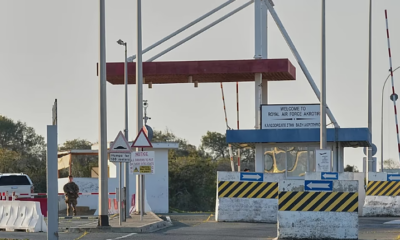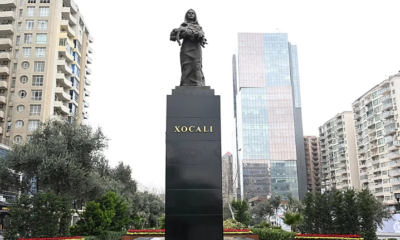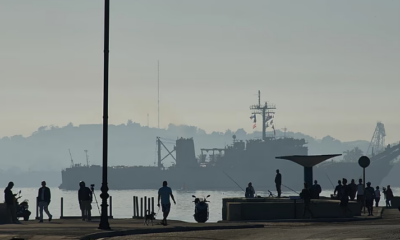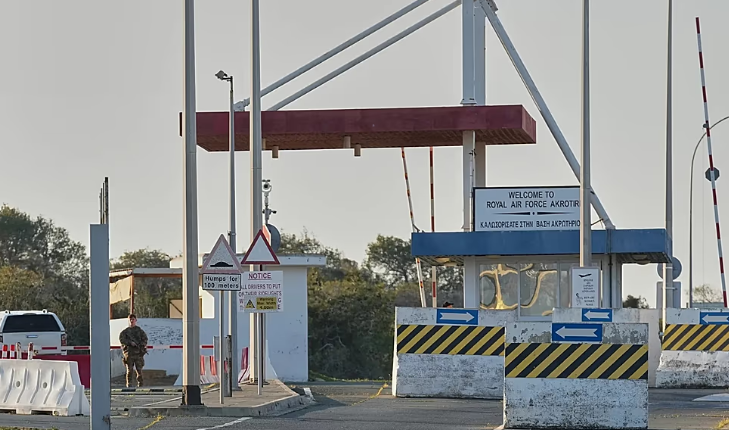News
Russian Drone Strike Kills Nine in Ukraine Hours After Peace Talks
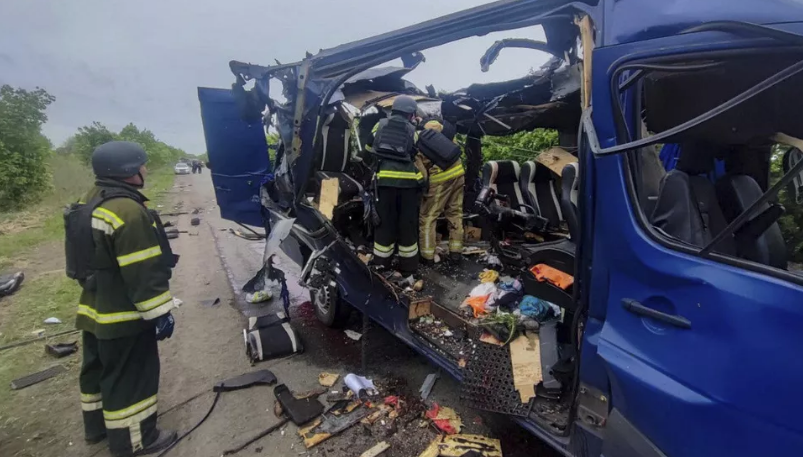
A Russian drone strike on a civilian bus in Ukraine’s northeastern Sumy region has left nine people dead and four others injured, in what Ukrainian officials are calling a deliberate attack on non-combatants.
The assault took place early Saturday in the town of Bilopillia, located roughly 10 kilometers from the Russian border. According to regional authorities, the drone hit a passenger bus, killing mostly elderly civilians. Three of the four wounded are reported to be in serious condition and are receiving treatment at a hospital in Sumy city.
The Sumy Regional Administration condemned the strike in a statement on Telegram, calling it “another war crime by Russia — a deliberate strike on civilian transport that posed no threat.”
The attack came just hours after Ukrainian and Russian delegations held face-to-face discussions in Turkey — the first direct peace talks in several years. While seen as a potential diplomatic breakthrough, the negotiations ended without a ceasefire agreement.
Photos released by Ukraine’s national police showed the charred remains of the bus and the surrounding area littered with debris, highlighting the devastating impact of the strike. Authorities are working to identify the deceased, many of whom are believed to be elderly women traveling within the region.
In response to the tragedy, local officials in Bilopillia declared a period of mourning until Monday. Yurii Zarko, head of the local community, described the day of the strike as “Black Saturday,” reflecting the grief and anger felt throughout the region.
The drone attack is part of a broader pattern of strikes on civilian infrastructure across Ukraine, as fighting continues along the front lines in the east and south of the country. Kyiv has repeatedly accused Moscow of targeting non-military sites in violation of international law — accusations the Kremlin denies.
The incident underscores the fragility of the current diplomatic efforts and the escalating toll on civilians as the war stretches into its third year. Despite renewed international calls for de-escalation, both sides remain deeply entrenched, with little sign of a breakthrough on the horizon.
News
Suspected Drone Strike Hits UK Base in Cyprus Amid Escalating Iran Conflict
News
Cruise Passengers Stranded Amid Escalating Middle East Crisis

The Persian Gulf is currently characterised by hostilities. The Strait of Hormuz is closed to shipping, with only vessels connected to China or Russia allowed to pass. The escalating crisis in the region has left thousands of tourists stranded on cruise ships and disrupted air travel.
On Sunday afternoon, a missile struck the water near the Mein Schiff 4, operated by TUI Cruises, while the ship was docked in Abu Dhabi, United Arab Emirates. Clouds of black smoke were reported over the water, according to the Bild newspaper. The vessel carries approximately 2,500 passengers and 1,000 crew members, with many due to return to Germany from Dubai. The situation on board is tense, and it is not yet clear if anyone was injured.
Security measures on the ship remain strict. Passengers are prohibited from entering outside decks, are advised to avoid windows, and receive regular alerts on their smartphones about potential incoming missile threats.
A sister ship, Mein Schiff 5, berthed in Doha, Qatar, is also affected. Passengers attempting to fly home from Doha on Saturday were forced to return to the ship after flights were canceled. Many had already boarded aircraft and had to leave luggage at the airport, waiting around ten hours before being taken back to the ship in the evening.
Other cruise lines are similarly affected. Six vessels are currently docked across ports in Dubai, Abu Dhabi, and Doha. These include the MSC Euribia from MSC Cruises, the Celestyal Discovery and Celestyal Journey from Celestyal Cruises, and the Aroya from the Saudi operator Aroya Cruises.
The closure of airspace in multiple countries in the region has compounded the situation, preventing passengers from flying home. Thousands remain stranded, unsure when they will be able to continue their journeys or be evacuated safely.
The crisis follows US and Israeli strikes in the region on Saturday, which prompted retaliatory attacks by Iran targeting military positions in the Persian Gulf. Cruise passengers, many of whom expected a calm holiday, have instead faced a sudden escalation in regional tensions.
Authorities in ports and embassies are coordinating with shipping companies to maintain safety and provide updates, but the rapidly evolving security situation has made evacuation and travel plans uncertain. Tourists are advised to follow official guidance and avoid unnecessary movement on or around their vessels.
The disruption highlights the wider impact of escalating hostilities in the Gulf, affecting not only commercial shipping but also tourism and international travel. Passengers on affected cruise ships and flights face prolonged delays as authorities work to stabilize the situation and ensure safety in the region.
News
Azerbaijan Commemorates Khojaly Massacre with New Memorial and National Ceremony
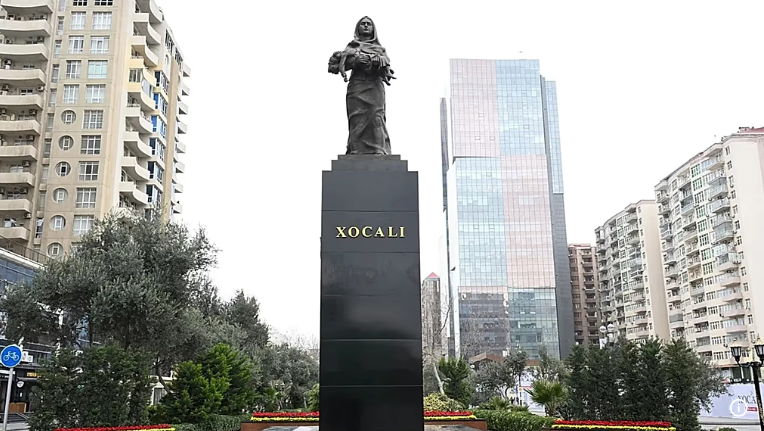
Azerbaijan held nationwide commemorations on Thursday to mourn the hundreds of civilians killed in February 1992 in the town of Khojaly during the Karabakh conflict with Armenia. President Ilham Aliyev led the ceremonies, inaugurating a new Khojaly Genocide Memorial Complex in Baku to honor the victims of what he described as “the greatest tragedy for the Azerbaijani people.”
Thousands of people gathered at the Khojaly Massacre Memorial in Baku for the National Day of Remembrance. A minute of silence was observed across the country as citizens paid tribute to those who lost their lives over 30 years ago.
Azerbaijani authorities state that 613 civilians, including women and children, were killed when Armenian forces, with the support of the former Soviet Union’s 366th Guards Motor Rifle Regiment, attacked Khojaly. Dozens more were reported missing or injured during the assault, which occurred amid the war between ethnic Armenian forces backed by Armenia and Azerbaijani troops over the Karabakh region and surrounding areas.
Human Rights Watch conducted its own investigation into the incident, attributing direct responsibility for the civilian deaths to Karabakh Armenian forces. Armenia has repeatedly denied the accusations, arguing that the reported death toll was exaggerated and that casualties resulted from fighting between the two sides.
Despite differing accounts, the Khojaly tragedy remains a deeply significant event in Azerbaijan’s collective memory. Commemorations continue to emphasize the human cost of the conflict and the impact on generations of Azerbaijanis.
This year’s ceremonies took place against the backdrop of a peace and reconciliation process between Azerbaijan and Armenia. Both nations have pledged to work toward a more stable and peaceful future following decades of conflict and suffering on both sides.
President Aliyev emphasized the importance of remembering the past while looking forward. The newly inaugurated memorial complex aims to provide a permanent site for reflection, ensuring that the victims of Khojaly are remembered by future generations.
The National Day of Remembrance has become a focal point for public reflection and national unity, drawing participants from across Azerbaijan. Observers note that the ceremonies serve both to honor the victims and to reinforce awareness of the historical and ongoing challenges in the Karabakh region.
Over 30 years after the massacre, Khojaly continues to hold a central place in Azerbaijani history. Thursday’s events highlighted the nation’s efforts to commemorate the past while supporting dialogue and cooperation with Armenia to foster lasting peace in the South Caucasus.
-

 Entertainment2 years ago
Entertainment2 years agoMeta Acquires Tilda Swinton VR Doc ‘Impulse: Playing With Reality’
-

 Business2 years ago
Business2 years agoSaudi Arabia’s Model for Sustainable Aviation Practices
-

 Business2 years ago
Business2 years agoRecent Developments in Small Business Taxes
-

 Home Improvement1 year ago
Home Improvement1 year agoEffective Drain Cleaning: A Key to a Healthy Plumbing System
-

 Politics2 years ago
Politics2 years agoWho was Ebrahim Raisi and his status in Iranian Politics?
-

 Business2 years ago
Business2 years agoCarrectly: Revolutionizing Car Care in Chicago
-

 Sports2 years ago
Sports2 years agoKeely Hodgkinson Wins Britain’s First Athletics Gold at Paris Olympics in 800m
-

 Business2 years ago
Business2 years agoSaudi Arabia: Foreign Direct Investment Rises by 5.6% in Q1

